Suchergebnisse für "Factsheet: Energietechnologien gestalten, die für alle sinnvoll und nutzbar sind"
Working document: The Biorefinery Fact Sheet (2014)
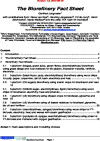
Version 1.0
Gerfried Jungmeier et al.
Herausgeber: IEA Bioenergie Task 42
Englisch, 48 Seiten
Downloads zur Publikation
Innovation in LARGE-SCALE
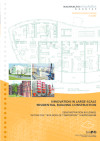
Demonstration buildings within the "BUILDING OF TOMORROW" subprogram.
4/2006
Herausgeber: BMVIT
Englisch, 6 Seiten
Downloads zur Publikation
Heating And Ventilation In The "building Of Tomorrow"
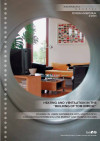
2/2004
Herausgeber: BMVIT
Englisch, 6 Seiten
Downloads zur Publikation
IEA Bioenergieprogramm 2010-2012 Task 42 Bioraffineriern
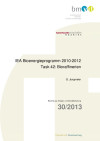
Schriftenreihe
30/2013
G. Jungmeier et al.
Herausgeber: BMVIT
Deutsch, 170 Seiten
Downloads zur Publikation
Innovationen im grossvolumigen Wohnbau
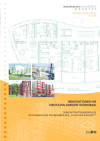
Demonstrationsgebäude im Rahmen der Programmlinie "Haus der Zukunft"
4/2006
Herausgeber: BMVIT
Deutsch, 6 Seiten
Downloads zur Publikation
Feeding Biogas Into The Austrian Natural Gas Grid
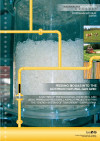
2/2006
Herausgeber: BMVIT
Englisch, 6 Seiten
Downloads zur Publikation
IEA Wirbelschichttechnologie (FBC) Arbeitsperiode 2009 - 2013
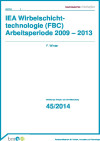
Schriftenreihe
45/2014
F. Winter
Herausgeber: BMVIT
Deutsch, 31 Seiten
Downloads zur Publikation
Synthesis Report: Mobilizing Sustainable Bioenergy Supply Chains (2015)
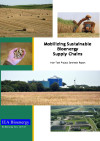
Herausgeber: IEABioenergy
Englisch, 170 Seiten
Downloads zur Publikation
Energieregionen der Zukunft
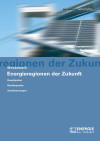
Ergebnisse des Wettbewerbs 2005 "Energieregionen der Zukunft"
Herausgeber: ÖGUT / BMVIT
Deutsch, 40 Seiten
Downloads zur Publikation
Monitoring der Leitprojekte aus Haus der Zukunft PLUS
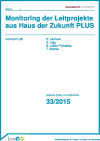
monitorPLUS
Schriftenreihe
33/2015
R. Lechner, B. Lipp, B. Lubitz-Prohaska, T. Steiner
Herausgeber: BMVIT
Deutsch, 61 Seiten
Downloads zur Publikation
Working document: "The Biorefinery Complexity Index" (2014)
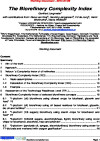
Gerfried Jungmeier et al.
Herausgeber: IEA Bioenergie Task 42
Englisch, 36 Seiten
Downloads zur Publikation
ÖKOinFORM Folder 2 - Ökologischen Baustoffoptimierung
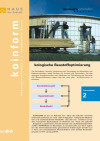
im Rahmen der Programmlinie Haus der Zukunft
J. Fechner, B. Lipp, R.Lechner
Herausgeber: BMVIT
Deutsch, 8 Seiten
Downloads zur Publikation
Broschüre Haus der Zukunft: Preisträger - Auszeichnungen - Anerkennungen 2000
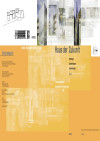
Herausgeber: BMVIT
Deutsch, 1 Seiten
Downloads zur Publikation
Das Schiestlhaus Am Hochschwab - Alpiner Stützpunkt In Passivhaustechnologie
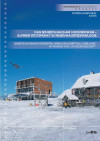
2/2005
Herausgeber: BMVIT
Deutsch, 6 Seiten
Downloads zur Publikation
Klimaneutralitätsfahrplan Feldkirch
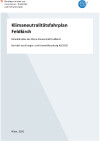
Klimafahrplan der Klima-Pionierstadt Feldkirch
Schriftenreihe
40/2025
Sebastian Stortecky, Ali Hainoun, Christina Connert
Herausgeber: BMIMI
Deutsch, 53 Seiten
Downloads zur Publikation
E3 Building
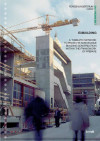
A thematic network to promote sustainable building constructio within the framework of PREPARE
1/2001
Herausgeber: BMVIT
Englisch, 6 Seiten
Downloads zur Publikation
The Market-driven Circular & Bioeconomy
8. June 2021, 10:10 – 12:30 Uhr
Online
Partner event of the EU GREEN WEEK 2021.
21st SolarPACES Conference
13. - 16. October 2015
Cape Town, ZA
Annual Conference of the IEA-Programme SolarPACES
EU Sustainable Energy Week
15. - 19. Juni 2015
Several locations, EU
Take part in shaping Europe's sustainable energy future.

